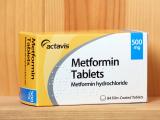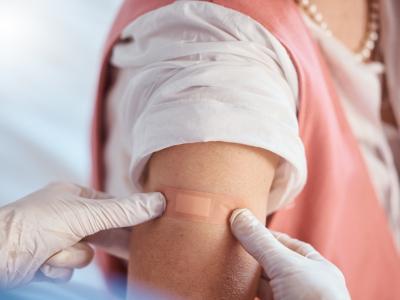COVID-19 patients who had received two doses of the Pfizer/BioNTech vaccine reported 8 of the 10 most common long-COVID symptoms 50% to 80% less often than their unvaccinated counterparts, finds an ongoing Israeli study published in the Nature journal npj Vaccines.
A team led by Bar-Ilan University researchers invited adults tested for COVID-19 at three affiliated hospitals in northern Israel from March 2020 to November 2021 to complete an online questionnaire about demographics, vaccination status, and any symptoms they had or continued to experience. The research was published Aug 26.
35% of infected patients had persistent symptoms
Nearly 3,500 people responded to the questionnaire, including 951 who tested positive for COVID-19. Of the 2,447 uninfected participants, 0.9% had received one vaccine dose, 48.8% received two doses, 30.4% received three doses, and the remainder were unvaccinated. Of the 951 infected participants, 36% had received one vaccine dose, and 31% received at least two.
The vaccinated group completed their questionnaire after a median of 4 months after diagnosis, compared with 8 months in the unvaccinated group.
Among the 951 infected adults, 67% reported at least one symptom at diagnosis. Sixty-nine percent of the unvaccinated group reported one or more symptoms at diagnosis, compared with 57% of those vaccinated with two doses and 74% of one-dose recipients.
By questionnaire completion, 35% of the 951 COVID-19 patients said they hadn't fully recovered from their illness, reporting lingering fatigue (22%), headache (20%), limb weakness (13%), and persistent muscle pain (10%).
After adjusting for age, time from symptom onset to questionnaire completion, and baseline symptoms, infected two-dose vaccine recipients were less likely than their unvaccinated infected peers to report fatigue (-62%), headache (-50%), limb weakness (-62%), and muscle pain (-66%) (risk ratios [RRs], 0.38, 0.50, 0.38, and 0.34). Shortness of breath was also reduced 80%.
Participants who received two vaccine doses had similar odds of reporting any common symptom as the uninfected participants, which the researchers said suggests that Pfizer vaccination protects against long-term COVID-19 symptoms.
Protection against 'life-changing' effects
In a Bar-Ilan University news release, senior author Michael Edelstein, MbChB, said the results add to the knowledge about COVID-19's long-term effects on physical and mental health. "It is becoming increasingly clear that vaccines protect not just against disease but, as the results of this study suggest, against long-term, sometimes life-changing, effects of COVID-19," he said.
The researchers said that future studies should objectively assess long-term COVID-19 outcomes among patients seeking treatment for their infections and investigate possible biological mechanisms.
"Our cohort, which continues to recruit participants, will enable us to report with more precision whether the BNT162b2 [Pfizer] mRNA's protective effect reported in this study is sustained, how vaccination impacts on activities of daily living post-COVID, as well as the effect of the different SARS-CoV-2 variants and vaccination on post-COVID symptoms," they concluded.



















